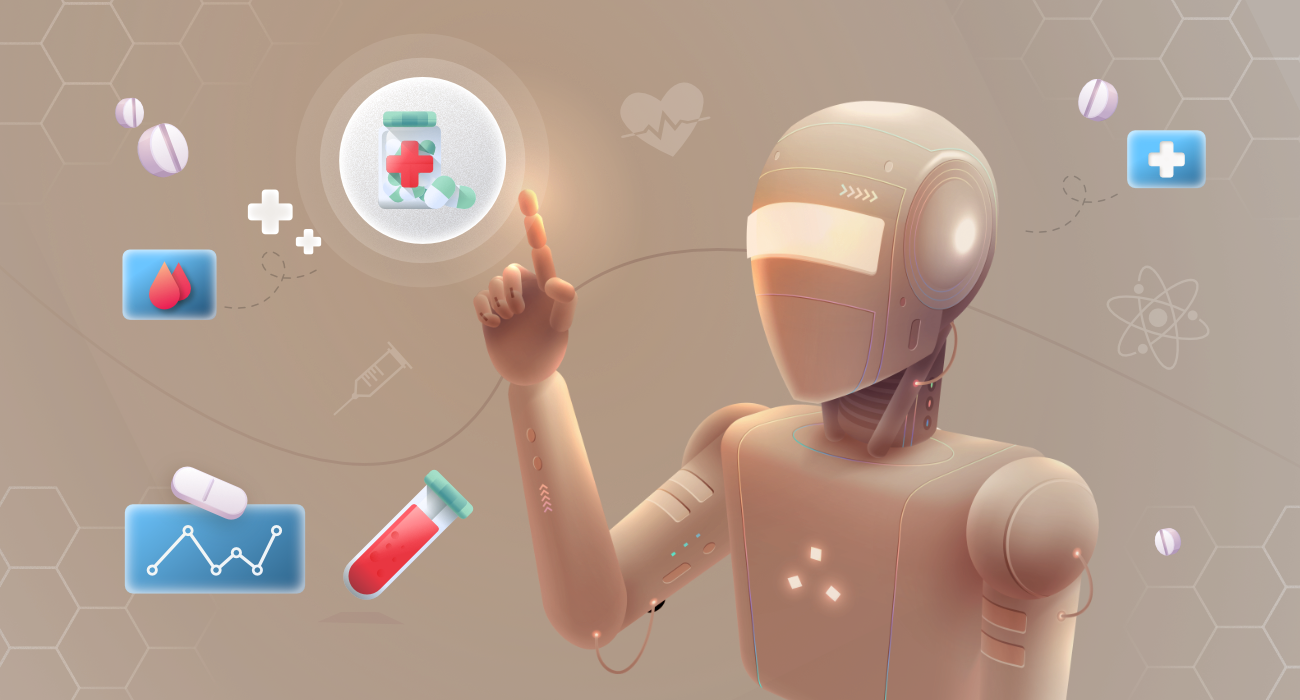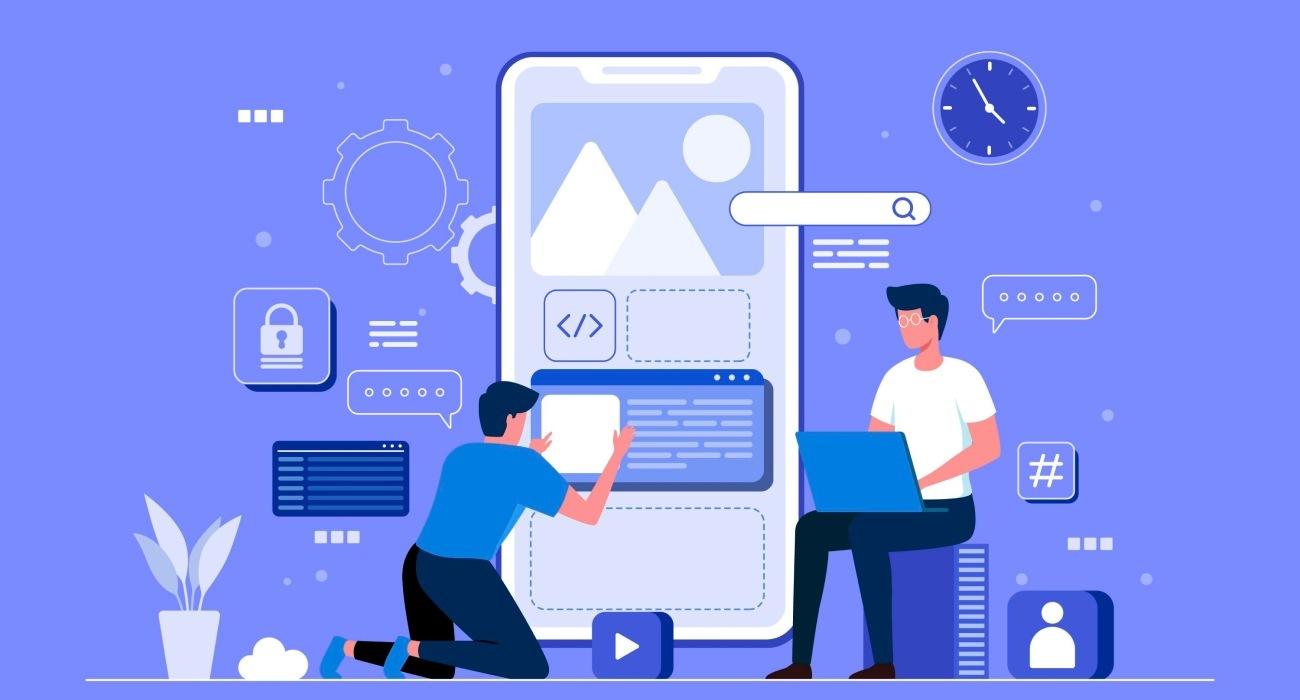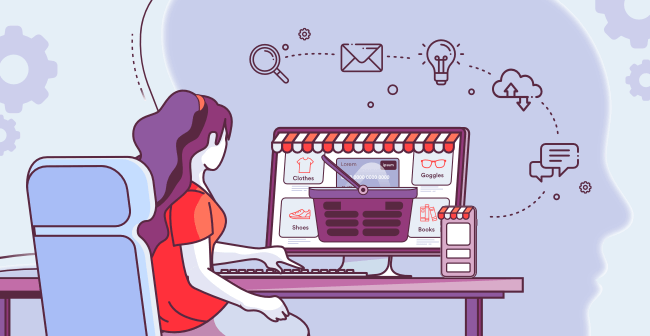There has been an ongoing debate on what will be the impact of the use of artificial intelligence in medicine.
Certain trade pundits perceive that it will reduce the impact of doctors and nurses from actual medical procedures.
While I do not think that's entirely possible, I know for sure that the powerful combo of artificial intelligence and medicine will bring about revolutionary changes in the healthcare domain.
The healthcare industry continues to evolve as machine learning in medicine grows in prominence.
Insider Intelligence reported that spending on AI in medicine is projected to grow at an annual rate of 48% between 2017 and 2023.
In the forthcoming sections of this write-up, I will provide a comprehensive guide about the role of medical AI and the impact of machine learning in medicine.
Table of Contents
- What Is Artificial Intelligence In Medicine
- What Do Studies Tell Us About Artificial Intelligence In Medicine
- How Is Artificial Intelligence Used In Medicine
- Applications Of Artificial Intelligence In Medicine
- The Role Of Artificial Intelligence In Medicine
- What Are The Benefits Of Artificial Intelligence In Medicine
- Impact Of Artificial Intelligence In Medicine
- The Future Of Artificial Intelligence In Medicine
1. What Is Artificial Intelligence In Medicine
Artificial Intelligence in Medicine, also known as AI in medicine, refers to using artificial intelligence technology/automated processes to diagnose and treat patients who require intensive care.
While AI medical diagnosis and treatment might seem to be straightforward steps, several other background processes must occur so that the patient can be appropriately taken care of.
This includes:
- Accumulation of data with the help of patient interviews and tests
- Processing and analyzing results
- Employing multiple sources of data to come to an accurate AI medical diagnosis
- Ascertaining the right treatment method from a wide array of options available
- Preparing and administering the selected treatment method
- Patient monitoring
- Aftercare, follow-up appointments, etc.
The argument in favor of the increased use of medical AI is that many of the processes mentioned above can be automated. Automating often results in the completion of the tasks more swiftly.
It also frees up a medical professional's time which they can use to perform other essential duties, especially the ones that cannot be automated. Hence, AI in medicine is seen as a valuable addition to human resources.
2. What Do Studies Tell Us About Artificial Intelligence In Medicine
According to a study conducted in 2016, physicians spend way too much time on data entry and desk work instead of talking to and engaging with patients.
According to Steven D. Stack, AMA Immediate Past President, "Most of the physicians today feel – data entry and administrative tasks are cutting into the doctor-patient time that is key to medicine and a primary reason why most of us became physicians at the very first place."
However, the key here is not to excessively over automate the medical and healthcare fields but deliberately and sensibly ascertain where automation can free up time and effort. The goal is to balance the effective utilization of artificial intelligence and medicine to train medical professionals' human strengths and judgment.
3. How Is Artificial Intelligence Used In Medicine
Due to the advancement in technology, we already see an incredible amount of technology and automation in play regarding medicines.
Irrespective of whether we recognize it or not, medical records have become digitized; today, appointments can be scheduled online. Patients can check into health centers or clinics with the help of their smartphones or computers.
As the use of technology has increased in all facets of our lives, so too has it quietly changed how we seek medical care. This has resulted in the perfect combo of artificial intelligence and medicine working in unison to revolutionize the healthcare sector for the better.
4. Applications Of Artificial Intelligence In Medicine
A prime example of applications of artificial intelligence in medicine is Futurism that lists several examples of AI already being used in medicine in today's times:
- Decision support systems – When provided with a given set of symptoms, DXplain comes with a probable list of AI medical diagnoses.
- Laboratory information systems – Germwatcher has been designed to ascertain, track, and investigate infections in hospitalized patients.
- Robotic surgical systems – The da Vinci robotic surgical system, with robotic arms, precise movement, and magnetized vision, enables doctors to perform precision surgery that would not have been possible with a completely manual approach.
- Therapy – AI therapy is an online course specifically for people who are struggling with social anxiety.
- Minimizing human error – Babylon is an online application through which patients residing in the UK can book appointments and routine tests. It also allows the patients to consult with the doctor online, check for symptoms, get advice, monitor their health, and order test kits.
5. The Role Of Artificial Intelligence In Medicine
If you think that the potential for increased AI usage in medicine is simply for a reduction in manual tasks and freeing up the physician's time, then you are wrong. It also increases the efficiency and productivity of the physicians. It even gives them the untapped opportunity to move towards more 'precision medicine.'
For many years in the past, physicians used to conduct general practice in medicine and make generalizations. Now, as we move towards the new age, with the help of advancements in technology, a massive chunk of data can be collected and analyzed quickly. This has made it feasible to provide personalized treatment based on specific knowledge. Hence, artificial intelligence and medicine go hand-in-hand to deliver effective therapy to patients.
As a result of this shift, in 2007, Google released an open-source version of DeepVariant, an AI tool for precision medicine.
We will see more reputed companies moving into the healthcare IT space soon.
6. What Are The Benefits Of Artificial Intelligence In Medicine
In its recent report, Tractica projected annual revenue of $8.6 billion from twenty-two healthcare AI tools by 2025. The current usage trends also imply a global revenue of $34 billion by the same year.
Here are some of the benefits of artificial intelligence in medicine.
- Enhanced accessibility
Most developing countries struggle to keep up with the fast-paced global technological advancements, as they have limited or no access to standard healthcare facilities and systems.
For residents of such a country, the possibility of dying is higher. According to WHO, restricted or zero healthcare availability is accountable for the 18.1 – year gap in life expectancy currently recorded between the world's richest and poorest nations.
With the help of innovations in medical AI, these disadvantaged nations can enjoy an efficient healthcare ecosystem.
AI-backed digital systems like artificial intelligence medical diagnosis can facilitate patient diagnosis and treatment.
There are dedicated applications developed to aid international and national healthcare organizations to come together and render necessary assistance to people who need them.
- Early diagnosis
AI-driven tools today are dependent upon people's data to access the previous and present health issues of patients. By comparing the disease details, healthcare professionals are positioned better to diagnose more accurately. The database in different healthcare mobile apps has computed millions of symptoms and diagnoses.
The good news is, it can predict the potential health issues an individual can encounter soon. A prime example of that is Verily from Google, an application created to forecast hereditary and non-contagious hereditary diseases. With the help of such tools, health experts can precisely predict and prepare for possible threats in the future by taking appropriate steps today. Similarly, healthcare facilities are now better equipped in terms of operational management, thanks to predictive analysis.
- Enhanced speed and curtailed costs
With the help of AI algorithms, healthcare processes have become faster and are available at a fraction of the original costs. From patient examination to diagnosis, AI has transformed the healthcare sector in terms of speed and costs. A prime example of that is that AI can ascertain the biomarkers that suggest disease in our bodies. AI algorithms have curtailed the manual work involved in specifying these biomarkers. Thanks to this massive automation, it is possible for medical practitioners to save more lives by acting swiftly.
Also, AI algorithms are considered more cost-effective in comparison to traditional methods. Patients have to take fewer trips into the laboratory as the AI algorithms provide prediction-based results based on personal information. This has resulted in increased execution of AI across the board in recent times.
- Efficient and unique assistance in surgery
Artificial intelligence development has taken a giant leap in robotic applications. The same can be said about machine learning in medicine. Today, there are dedicated AI Surgical Systems that can execute the tiniest movements with 100% precision.
In simple words, it means medical practitioners can efficiently perform complex operations with reduced risk of side effects, blood loss, or pain. In the same way, post-surgery recovery is quicker and easier. For example, patients waiting for operations are subjected to Antibacterial Nanorobots that get rid of all infections in their blood before surgery.
The best thing about AI-backed information on the patient's present situation is that it becomes available to the surgeons in real-time. This has helped in a great way to quell all doubts of the patients, especially pertaining to the surgery under general anesthesia.
- Improved human capabilities and mental health support
Today robots aid patients alongside the medical staff. A good example is exoskeleton robots that aid paralyzed people in regaining their mobility with little or no help from caretakers. Similarly, smart AI-backed prostheses are fitted with sensors that serve as more reactive limbs than traditional models.
By executing machine learning in medicine, service robots can handle daily tasks and keep company with the patients. There are also dedicated companion and conversational robots that carry out requisite tests and checks – sugar levels, blood pressure, controlling temperature, and even taking pills.
Some robots aid depressed patients, thanks to their in-built analytic capabilities. With the help of these capabilities, they can scrutinize the patient's mood and help them become more positive.
These are the benefits of artificial intelligence in medicine. In the last section of this write-up, I will help you understand the impact of artificial intelligence in medicine.
7. Impact Of Artificial Intelligence In Medicine
Technology has become a prominent part of our daily lives. Just think about it: From the second we wake up till we sleep at night, we constantly interact with technology to manage our lives to get us from one point to another or to check in on our loved ones through social media. We interact with Artificial Intelligence (AI) so that most of us do not even realize we're doing it.
According to research, it was estimated that nearly half (approximately 45% or 133 million) of all Americans live with at least one chronic disease in the US alone. These illnesses harm individuals' health, curbs their independence, and poses an enormous financial burden.
In 2015, the total national health expenditures were $3.2 trillion, and these costs are continuously increasing as the years roll by. Within the next decade or so, the population of people above 65 years of age will exceed the number of children under five for the first time in human history!
So, now the question is, how can AI help? As technology has got more competent, it can organize information and recognize a pattern in health faster than ever. In the year 2017, Toyota tested a robot that can be employed in the home of a person with limited mobility to aid them with daily activities, including holding a cup of water for a person to drink from, opening doors, or retrieving items from another room.
For the older generation, one of the biggest obstacles faced in the healthcare world is medication compliance. Noncompliance is not always done on purpose; however, when a person has ten different prescriptions that need to be taken at other times, some with food, some with an empty stomach, some only when needed, some required every 2, 4, or 12 hours, it's very easy for a person to forget to adhere to the medications they have been prescribed.
AiCure is a company planning to help with this problem. With the help of their app, which is HIPAA-compliant facial recognition software, is employed to ascertain the patient who holds up their medication to the camera to ensure that the proper medication is being given at the right time and is checked in real-time to ensure that the medication was actually ingested. This app sets alarms and reminders for the different medications a person may take, look for adverse reactions between medications, ensures that a person isn't taking two types of medications for the same ailment, and scrutinizes data to enable preemptive intervention.
Every day, start-ups and major corporations try their best to find ways to give us the healthiest, disease-free life possible.
8. The Future Of Artificial Intelligence In Medicine
The future of AI in the medical field may include activities that vary from basic to advance. It may consist of answering calls, scrutinizing medical records, trending population health, and analytic in the near future.
It will also help develop medicinal drugs and devices, read radiological images, make artificial intelligence medical diagnoses and treatment plans, and even communicate with patients. All of this is a part of AI's improvement plan in the near future.
On the other hand, various physicians have argued that AI in the medical field will do the following to the medical profession:
- Give a chance to non-experts to infiltrate the profession
- Improper use of medicine
- Escalate inefficiency
- Make the role of a doctor extinct
Although these concerns are ideal, it will be nearly impossible to reduce the impact of AI in the medical field in the near future. Effective monitoring and proper regulations will then become the order of the day to ensure that such negative things do not happen in the medical profession.
Artificial intelligence will work with researchers to make informed decisions for approved drugs and develop therapies for other diseases in the pharmaceutical field. In the pharmaceutical space, AI brand representatives are redefining engagement by delivering more personalized, data-driven interactions with healthcare professionals. Also, it will expedite the process of clinical trials by opting for the right patients, thanks to the wide range of data sources available at that time.
The Pharmacy sector is also putting in work in forecasting with some accuracy when and where infectious outbreaks like the current COVID-19 pandemic may occur. Similarly, pharmaceutical artificial intelligence will also focus on the database to prescribe drugs for patients. Also, the history of previous outbreaks and some other mainstream outlets will be considered while forming a database.
Barring the negative concerns that some physicians have, the future of artificial intelligence in medicine is bright. Albeit, if it does not get into the hands of the wrong individual!
For more updates on the trending technological advancements globally, keep a close watch on this section.















Leave a Reply